At the center of a working environment with high levels of trust is the magic ingredient: psychological safety.
If you’re a leader who is keen to improve company culture and your team’s performance, then focusing on building trust—and with it, psychological safety—is key.
In this article, we’ll look at what psychological safety is, and give you some Slido tips that will help you foster it within your team.
What is psychological safety?
Psychological safety means feeling safe to take risks, share ideas, ask questions, and admit mistakes within a team.
It’s important for team members to believe they can be open and honest without fear of judgment.
A psychologically safe space will feel inclusive and empowering.
Taking away the fear of judgment when speaking up and sharing mistakes contributes not only to employee well-being but also has a significant impact on overall team productivity—up to 50%, according to Accenture.
You can read more about why psychological safety is essential for workplace performance here.
5 Slido activities to build psychological safety in your team
Establishing psychological safety remains a challenge for many leaders, with 74% struggling to create it within their teams, according to a 2021 report by McKinsey.
One way to begin cultivating it is with tools like Slido, which make it easier to initiate authentic discussions and make it less nerve-wracking for employees to speak up.
Here are five activities to try out with your team.
#1. Embrace uncertainty
Leaders often feel the weight of expectations to have all the answers. However, admitting that you’re not sure of an answer shows vulnerability and that you are a human being, which can strengthen team cohesion.
If you’re unsure about the direction of a concept, project or idea, why not try using a Slido poll to ask your team what they think about it?

By opening the floor for input by team members, you’ll help to encourage a culture of collaboration and empowerment.
💡 Use a rating poll during your team meeting to get a sense check, followed by an open text poll to collect ideas from your team.
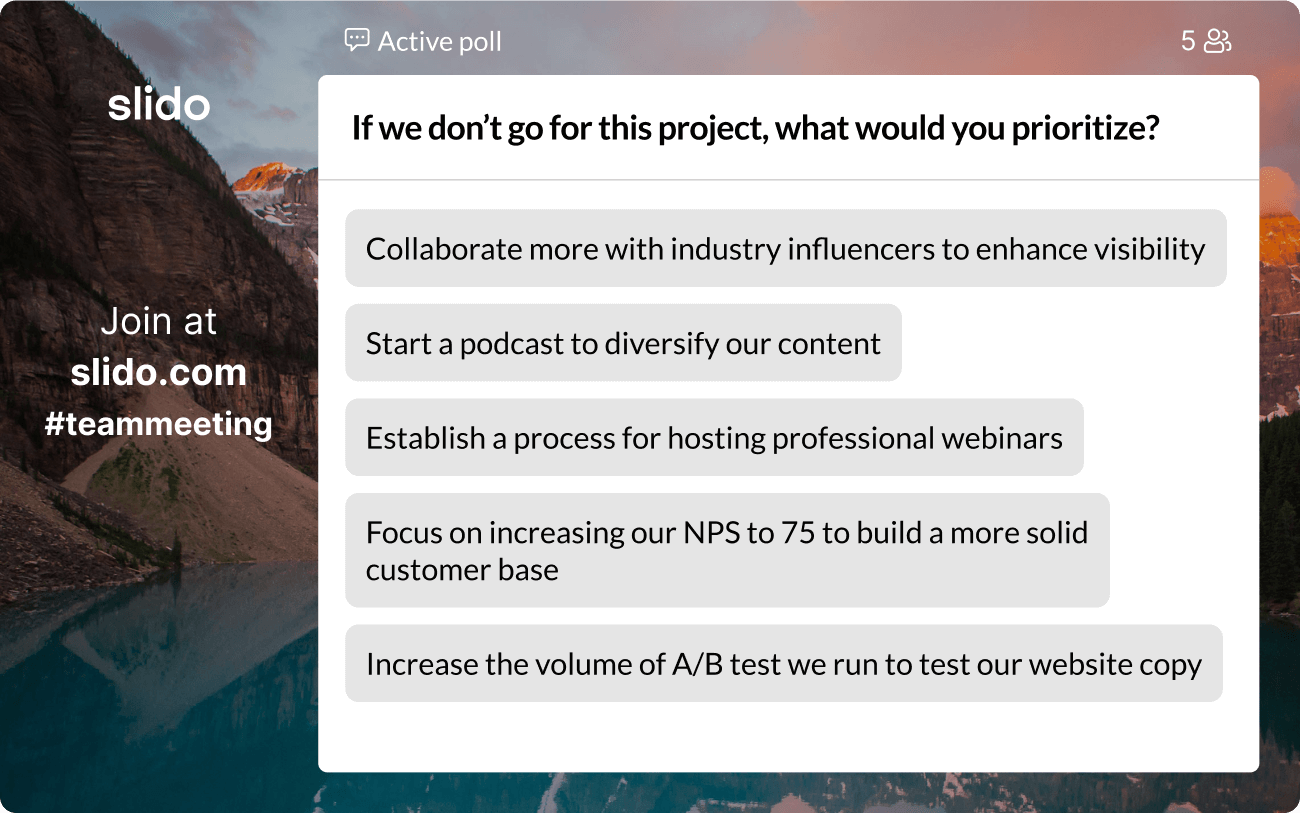
#2. Uncover unwritten team rules
Unwritten rules govern team interactions more than we realize. For example, team members with different levels of sensitivity may worry about offending one another when giving feedback.
The “unwritten rules activity” can help to unearth these norms. Making them explicit can help people to feel safer and enhance team alignment.
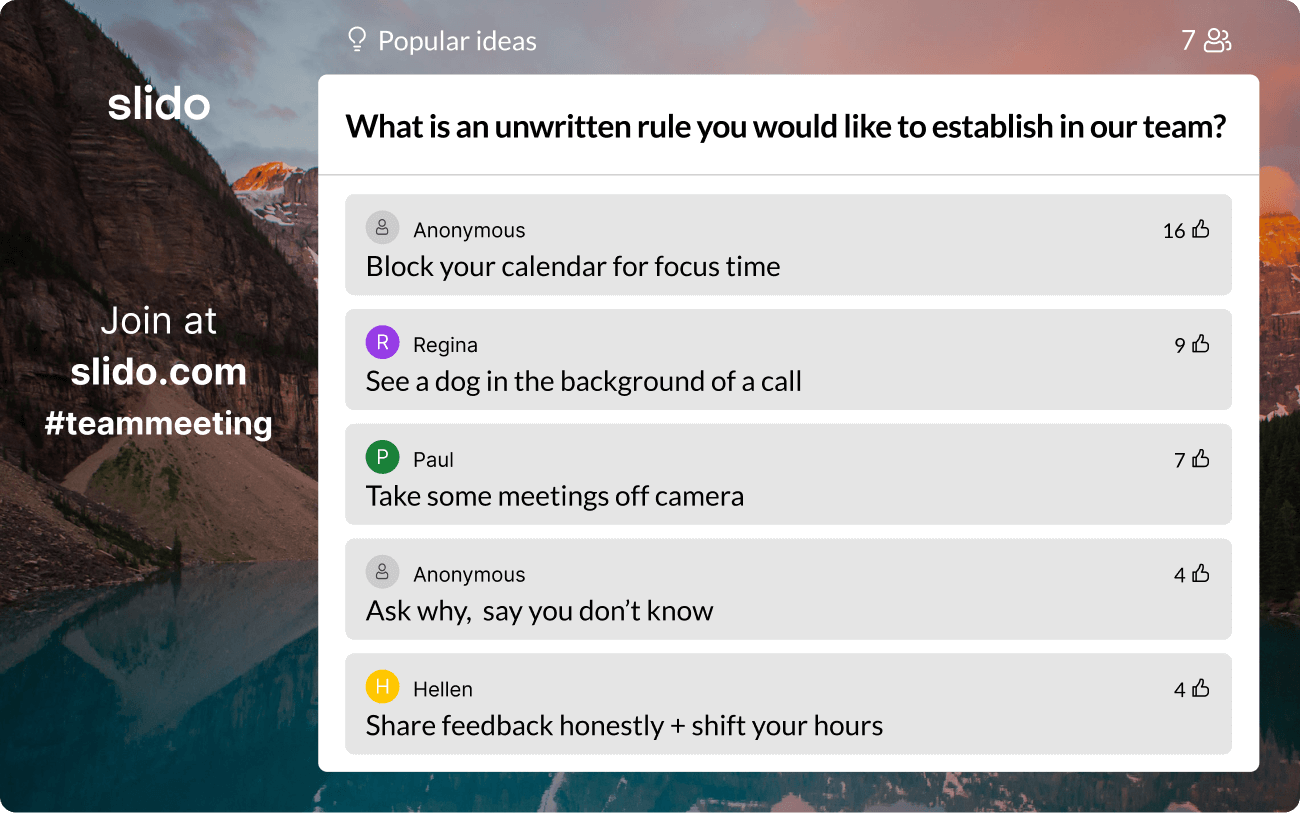
💡 With Slido’s Ideas feature, team members can anonymously share norms they would like to establish within their team – for example, establishing a new system of timely and honest feedback that is not meant to offend others but instead help the team to grow.
In a second step, let individuals vote on rules they agree with to create a shared understanding of team dynamics.
After running this activity, we suggest sharing those rules publicly (for example on your team’s Notion page or Slack channel), which will help to establish them as new, more democratic ways of working in your team.
#3. Celebrate learning from mistakes
Mistakes are inevitable in any team or business, yet they often remain taboo. The “mess up of the month” activity encourages open dialogue around mistakes. By normalizing failure as an integral part of work, teams cultivate resilience and psychological safety.
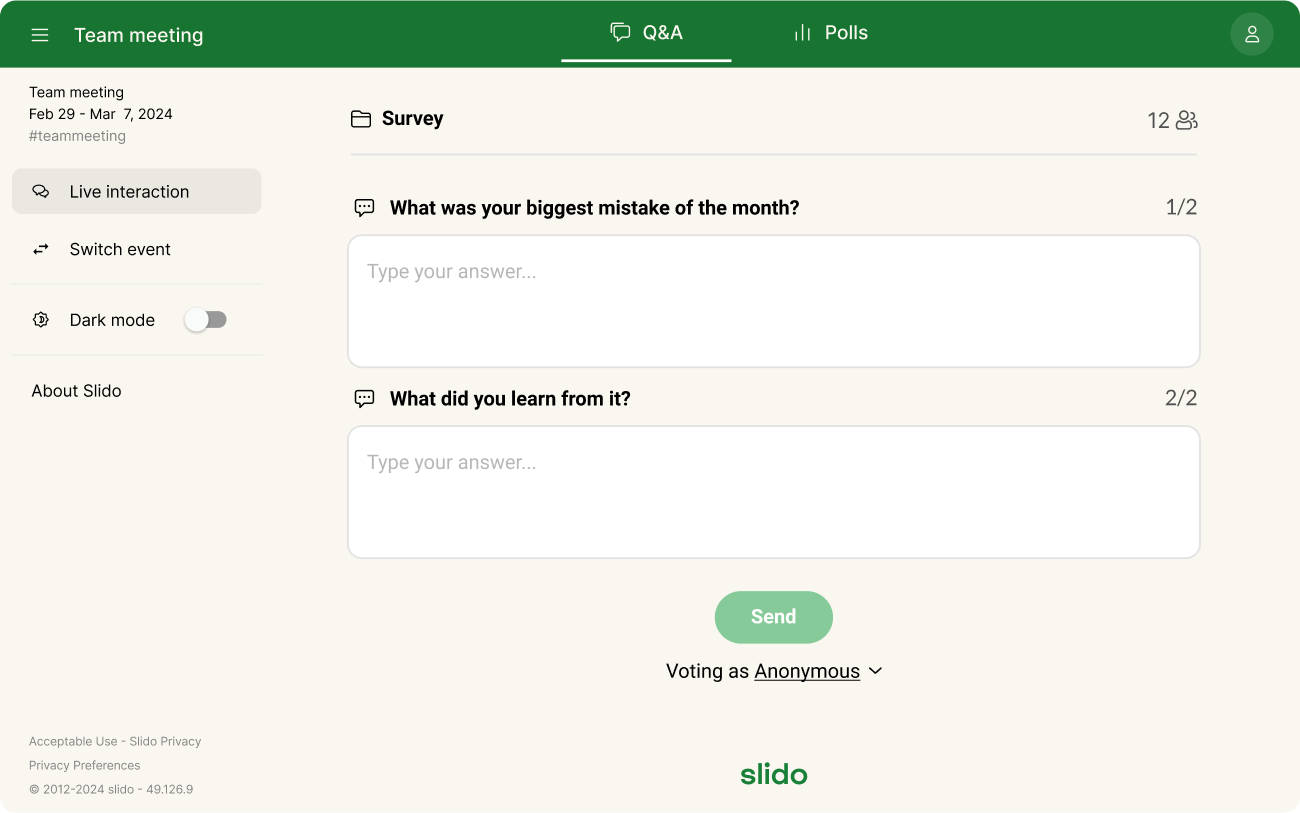
💡 By using Slido’s survey feature with open text polls, teams can reflect on their mistakes and learn from each other, discussing them within a meeting and eventually growing as a team.
#4. Nurture personal connections
Beyond professional roles, understanding team members on a personal level builds trust and empathy.
Rather than viewing our non-work selves as something to be hidden away, sharing a part of our personal lives can help us find similarities and feel connected to each other.
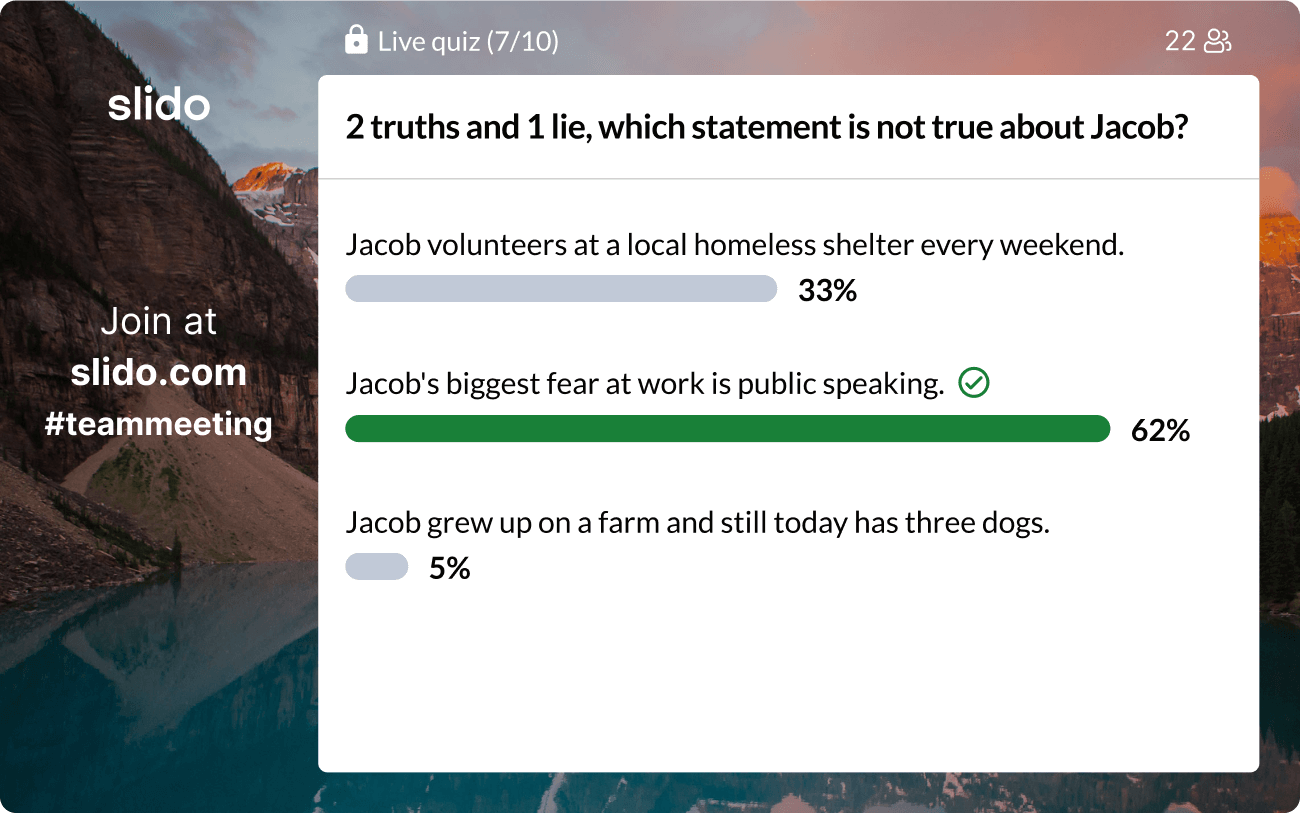
💡 A Slido quiz can be a fun team bonding activity, and serve as an icebreaker at the start of a team meeting. For the “two truths and a lie” activity, collect statements from your colleagues in advance and use those facts to create a quiz. Add a timer for an extra element of excitement!
#5. Create a safe space to raise concerns
Fear of judgment often stifles open communication within teams. By providing a platform to ask anonymous questions, leaders will encourage people to speak up.
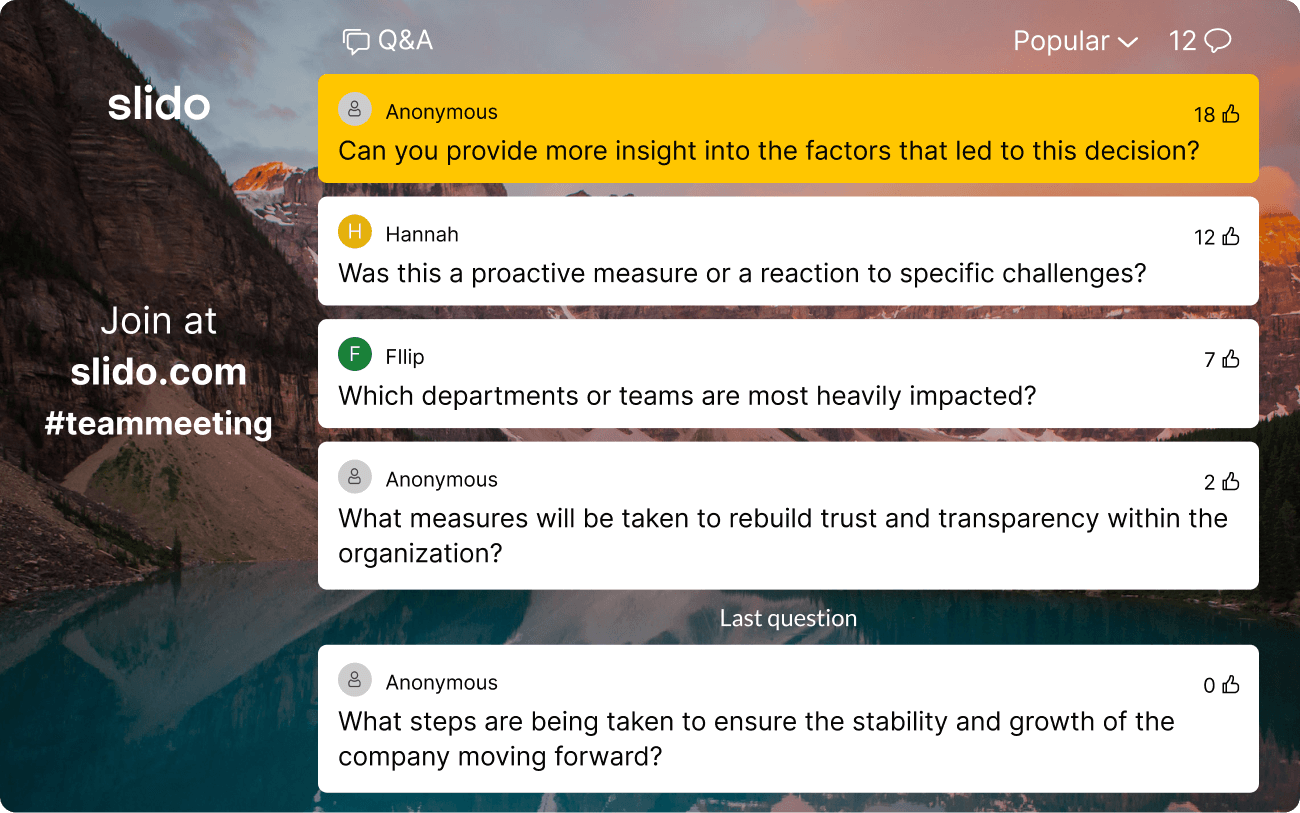
💡 Making it optional to add your name during a Q&A session empowers individuals to voice their concerns freely. Make sure to praise contributors during the Q&A (whether with name or anonymous), which reinforces a culture of free expression.
Over to you…
Creating this safe space where teams feel empowered to speak up isn’t easy. But by doing so, leaders lay the groundwork for resilient, high-performing teams where every voice is valued.
If you’d like to learn more on how leaders are creating psychologically safe environments for their teams, check out our new ebook, Great Meetings, Great Cultures.
Slido can help and provide a platform where open, honest, and authentic dialogue happens. Make sure to give it a try!




